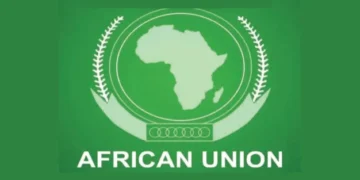Blitz Bureau
NEW DELHI: THE United States has sent $7.5m to the government of Equatorial Guinea, one of the world’s most repressive and corrupt regimes, to accept noncitizen deportees from the US to the west African nation, according to a leading congressional Democrat, current and former state department officials, and public government data.
The money sent to Equatorial Guinea is the first taken from a fund apportioned by Congress to address international refugee crises – and sometimes to facilitate the resettlement of refugees in the US – that has instead been repurposed under the Trump administration to hasten their deportation, according to a Guardian report.
According to government data, the sum from the Migration and Refugee Assistance (MRA) emergency fund was sent directly to the government of Equatorial Guinea, whose president, Teodoro Obiang Nguema Mbasogo, has been in power for the last 46 years, and who is accused along with his son, Nguema Obiang, the vice-president, of embezzling millions of dollars from the impoverished nation to fuel their lavish lifestyles.
Observers noted that the deal was conducted in relative secrecy for an administration that has been proud of its efforts to hammer out agreements for the deportation of thirdcountry nationals (TCNs) who could not be sent back to their home countries.
In a letter sent to Marco Rubio, the US secretary of state, Jeanne Shaheen, the top-ranking Democratic senator on the Senate foreign relations committee, called the payment “highly unusual” and noted the country’s “history of corruption” and government officials’ “complicity in human trafficking” that raised “serious concerns over the responsible, transparent use of American taxpayer dollars”.
She also asked what protections, if any, would ensure that the deportees would not be “vulnerable to human trafficking, human smuggling or human rights abuses”. Washington has approached at least 58 governments about accepting deportees, often securing agreements through cash payments or diplomatic pressure including travel ban threats. Nearly all the countries involved – including Eswatini, South Sudan and El Salvador – feature in state department reports for serious human rights abuses.

































